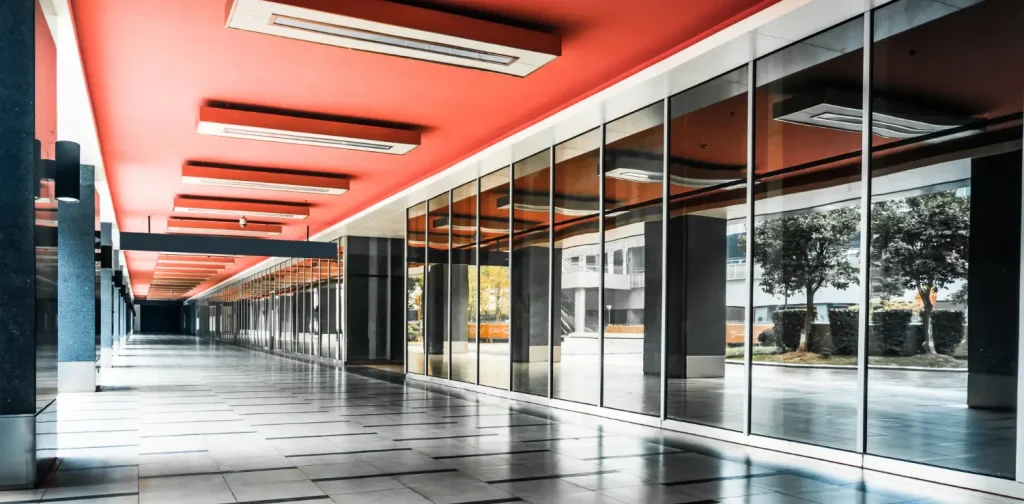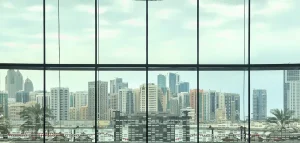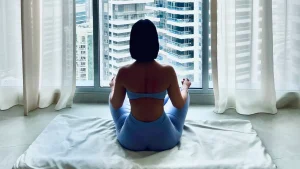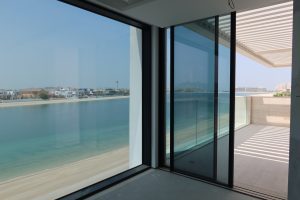Folding Doors and Glass Partitions: Modern Workspace Trends Shaping Dubai Offices in 2025
Introduction – The Evolution of Workspaces in Dubai
Dubai’s commercial landscape has evolved rapidly over the past decade. Once dominated by closed cubicles and heavy interiors, today’s offices are brighter, more transparent, and designed for collaboration. From startups in Business Bay to global headquarters in DIFC, organizations are rethinking how design influences productivity, well-being, and flexibility in a hybrid work environment.
A major part of this transformation is the growing use of glass partitions in Dubai and folding doors. These architectural elements merge aesthetics with functionality — maximizing light, optimizing space, and improving acoustic comfort. As companies in the UAE adopt human-centric design principles, glass systems have become essential to shaping modern workspaces.
The Rise of Transparency and Collaboration in Modern Offices
The modern office emphasizes openness, visibility, and shared communication. Transparent layouts create a sense of community while allowing individual focus zones to remain intact. Research from the Harvard Business Review highlights how open, well-lit offices enhance team engagement and accessibility to leadership.
However, transparency alone isn’t enough — balance is key. Designers now combine visual openness with acoustic and spatial control. Glass partitions and folding systems help create dynamic zones: open when collaboration is needed and enclosed when privacy is essential. This flexibility is particularly valuable in Dubai’s fast-paced corporate culture, where offices must adapt to varying workstyles and team sizes.
Harvard Business Review – Office Design and Productivity
Folding Glass Doors – Functionality and Flexibility in One System
Folding glass doors represent a hallmark of modern workspace design. They enable physical transformation without permanent walls, allowing areas to expand, merge, or close off as required. Commonly installed in meeting rooms, lounge areas, or training spaces, these systems offer unmatched flexibility.
Their advantages include:
● Efficient space use: Folding panels slide and stack neatly, opening up floor area.
● Daylight integration: Transparent panels enhance natural lighting, reducing the need for artificial illumination.
● Visual continuity: Even when closed, glass maintains a connection between zones.
In offices across Dubai — from Jumeirah Lakes Towers to Downtown — folding glass doors support multipurpose layouts that suit both focused work and social interaction. They combine architectural elegance with daily practicality, aligning with global workspace trends.
Learn more about sliding glass doors in Dubai and how they complement folding systems in modern interiors.
Acoustic Comfort – The Hidden Factor Behind Productive Offices
While open design encourages teamwork, it also introduces new challenges: noise and distraction. Acoustic control has therefore become one of the most critical factors in workspace design.
High-quality acoustic glass partitions reduce noise levels through laminated interlayers that absorb and disperse sound vibrations. Depending on design, these systems can lower sound transmission by up to 40–45 decibels — a substantial improvement in open-plan environments.
In Dubai, where offices are often located near busy roads or construction sites, this technology provides a tangible improvement in comfort. Research from the World Green Building Council emphasizes that quieter work environments contribute directly to higher productivity and reduced stress.
World Green Building Council – Health & Productivity in Offices
The integration of soundproof windows in Dubai further enhances building acoustics, ensuring both thermal and sound insulation for balanced interior environments.
Design Versatility – Minimalism with Professional Identity
A defining trait of modern UAE offices is minimalist design — clean lines, open views, and unobtrusive materials that project professionalism. Frameless partitions, black-matte profiles, and frosted films are increasingly used to achieve this aesthetic balance.
Glass systems also allow for a high degree of customization. Privacy films, etched branding, or tinted finishes help define identity while maintaining transparency. In executive suites, smart glass technology allows panels to shift from clear to opaque at the touch of a button, supporting privacy on demand.
This design versatility reflects Dubai’s architectural DNA — sophisticated yet practical, futuristic yet efficient. From coworking spaces to multinational offices, glass-based interiors have become a symbol of modern corporate culture.
Energy Efficiency and Sustainability
Beyond aesthetics, glass partitions and folding systems play a major role in sustainability and energy efficiency. With Dubai’s year-round heat, interior glazing helps regulate temperature by minimizing heat gain through advanced coatings and insulated gaps.
According to the Dubai Municipality’s Green Building Regulations, thermal performance is a key aspect of sustainable design. Double or triple-glazed glass with low-emissivity (Low-E) coatings can significantly reduce cooling loads while maintaining light levels — reducing electricity consumption by up to 30%.
By integrating double and triple glazing solutions, companies contribute to both environmental goals and cost savings. These designs align with the UAE’s national sustainability initiatives and the Dubai 2040 Urban Master Plan, which encourages resource-efficient buildings that prioritize human comfort.
Practical Considerations When Choosing Glass Systems
Selecting the right glass system for a workspace requires careful assessment of both visual and functional needs:
1. Acoustic performance: Choose laminated or double-glazed systems for meeting rooms and client areas.
2. Privacy requirements: Use frosted or switchable panels for HR or executive spaces.
3. Frame type: Frameless options emphasize minimalism; framed systems deliver higher sound insulation.
4. Safety standards: Always ensure compliance with UAE safety regulations for tempered or laminated glass.
5. Maintenance: Opt for systems that allow easy cleaning and durable track mechanisms.
Professional design and installation ensure performance longevity and alignment with Dubai’s stringent building codes.
Trends Defining Glass Architecture in 2025
As workspace design evolves, several key trends are shaping how glass is used in corporate interiors:
● Hybrid and adaptive spaces: Offices are designed to transition between collaboration and concentration modes.
● Human-centric wellness: Design focuses on daylight, air quality, and acoustic comfort.
● Smart integration: Automated privacy controls, sensors, and climate-responsive coatings are becoming standard.
● Sustainability metrics: Acoustic and thermal performance now contribute to ESG reporting and LEED certification.
These directions reflect how workplaces are moving from purely visual design to measurable comfort and environmental performance — where glass architecture plays a central role.
Local Expertise and Precision Installation
While global trends inspire new designs, execution determines success. In Dubai, Sono is among the specialized companies focusing on architectural glazing and acoustic window systems. Its work across residential and commercial sectors highlights the importance of technical precision — correct sealing, structural alignment, and frame quality determine how well a system performs over time.
Collaborating with experienced local specialists ensures compliance with UAE standards while adapting to specific site conditions such as heat exposure or building movement. For renovations, upgrading existing windows and partitions to modern acoustic specifications can yield immediate improvements in noise control and energy efficiency.
For project inquiries or technical consultation, visit Contact Sono.
FAQs – Folding Doors and Glass Partitions in Modern Workspaces
1. Are glass partitions suitable for soundproof offices?
Yes. Laminated or double-glazed acoustic glass partitions can significantly reduce sound transmission while maintaining openness and natural light.
2. What’s the difference between folding doors and sliding partitions?
Folding doors open by stacking multiple panels, creating a wide passage. Sliding partitions move laterally and are ideal for narrower or permanent separations.
3. Do glass partitions affect cooling efficiency in Dubai offices?
When coated with Low-E films and properly sealed, glass systems improve insulation and reduce heat gain, enhancing overall energy performance.
4. How can privacy be maintained with transparent glass walls?
Privacy can be achieved through frosted films, partial etching, or switchable smart glass that transitions from clear to opaque on command.
Conclusion – Designing Workspaces That Reflect Tomorrow’s Vision
Dubai’s rise as a global business hub has accelerated the demand for offices that combine innovation, comfort, and sustainability. Glass partitions and folding door systems symbolize this balance — enabling transparency while supporting privacy, collaboration, and energy efficiency.
The modern workspace is no longer defined by fixed walls, but by adaptability and user experience. As companies continue to refine how design influences performance, glass architecture remains at the heart of this evolution — not as a luxury, but as a fundamental tool for shaping better, healthier, and more connected environments.
Learn more about glass partitions and soundproofing solutions in Dubai and discover how architectural glazing is reshaping the future of workspaces across the UAE.





